5 Things We Learned About Aruba Co-Founder Keerti Melkote
Keerti Melkote sees the U.S. as a magnet for the world's best and brightest, a land of almost boundless educational and entrepreneurial opportunity. A policy of limited immigration compromises that position as the world's other economies gain the footing necessary to compete with the U.S. for talent, he says.
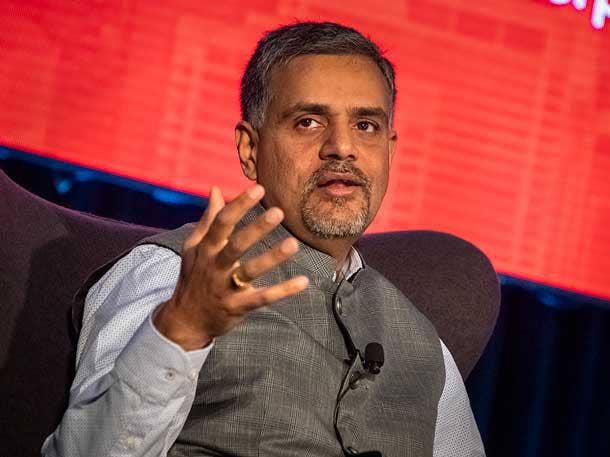
The Foundation
Keerti Melkote, co-founder and general manager of Aruba, an HPE company, says the U.S. is "looking backward" when it comes to immigration policy, and the Trump administration's current position on immigration is "totally wrong."
Melkote, who was born and grew up in India, sees the U.S. as a magnet for the world's best and brightest, a land of almost boundless educational and entrepreneurial opportunity. A policy of limited immigration compromises that position as the world's other economies gain the footing necessary to compete with the U.S. for talent, he said.
Melkote shared his views on immigration, entrepreneurship, education, technology and other topics during a recent interview with CRN at The Channel Company's Best of Breed conference.
Melkote's legacy as a wireless networking pioneer is solid and secure. The co-founder and general manager of Aruba forged ahead with the founding of the company in 2002 despite the very real possibility that it would simply be crushed by the market's dominant force, Cisco Systems.
Today, Aruba is part of HPE, and is making a serious and aggressive challenge to Cisco as the networking market increasingly moves toward open, software-centric strategies. Here are a few things we learned about the man who is leading that charge.
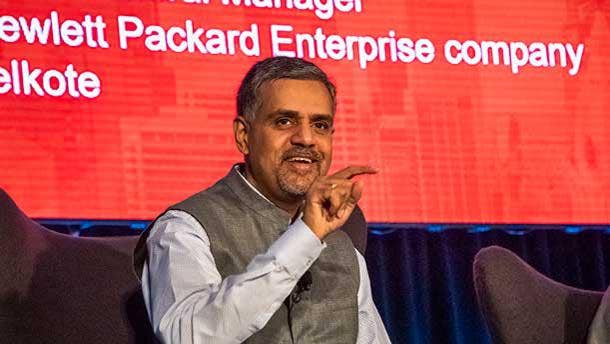
He is disappointed in the Trump administration's immigration policies.
Melkote said the freedom to come to the U.S. to study and develop a career is the engine of American innovation. That innovation, he said, is being threatened by policies that seek to severely limit immigration, and it comes at a time when other economies are challenging the U.S.’ technology dominance.
"I think people don't realize that it is a globally connected world and there are very hungry entrepreneurs everywhere, and everybody is looking to innovate," he said. "America was the place that attracted the best and the brightest to the land of opportunity, and people came here because the universities were phenomenal, you could get a great education, but also because you could innovate, it was an open economy. We are closing, and I just find that very disturbing, actually. I don't think it's sustainable. I don't think it is going to work that way long term."
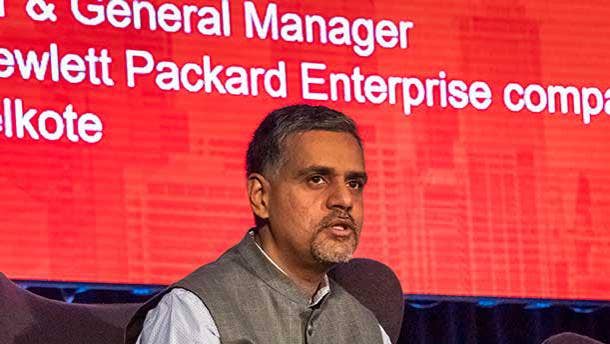
He spends a great deal of time mentoring entrepreneurs in India.
Melkote said his high profile means he fields a lot of requests for investment from India-based entrepreneurs who "think I can invest in their ideas." While that might sound like a nuisance to many top execs, Melkote relishes the opportunity.
"What I find refreshing is the fresh eyes with which they're thinking of modern problems and how they how they want to solve it, and they're typically looking for guidance in terms of not only the technology disruption, but how do you set up a business," he said.
Beyond that, many of the entrepreneurs Melkote talks to are interested in how to make sure their business is built for the long haul. And it's not just a one-way street. "It gives me energy and gives me fresh ideas, and hopefully I'm able to contribute back as well," he said.
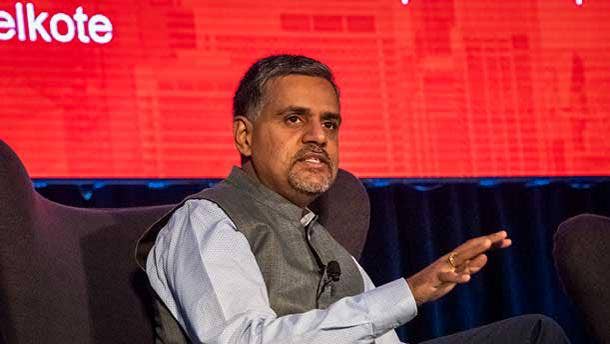
He's an engineer by training and landed in Silicon Valley in an effort to pay off student loans.
Melkote got his Bachelor's degree in engineering in India, and came to the U.S. to attend Purdue University, where he got his Master's degree. He wanted to follow that up with a Ph.D, "but in 1993 I had racked up enough student loans, which a lot of kids can relate to these days, and so I had to pay them off and I was lucky enough to get a job from Intel back in the day, and the rest is history," he said.
Intel was followed by a fruitful tenure at Cisco, but Melkote couldn't resist the call of the entrepreneurial spirit.
"Being in Silicon Valley, the entrepreneurial spirit is in the air and so you challenge yourself every day to go, 'What's special about you? What's different?' And so I wanted to go do something to make a difference and having experienced being part of big companies like Intel and Cisco, I wanted to see what I could do with my own two hands," he said. "That's what Aruba was."
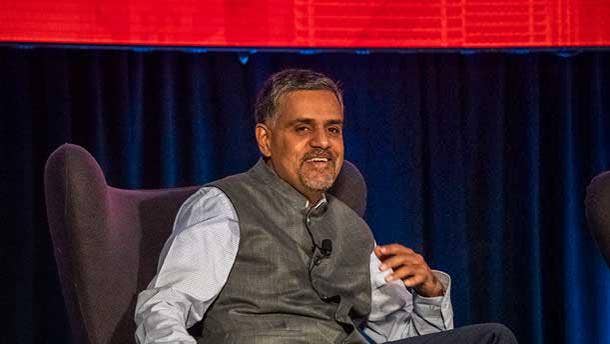
Education was Melkote's ticket out of a closed economy.
Melkote comes from humble beginnings, and his parents encouraged him to take his education as far as possible in order to break out of India's closed economy and gain a measure of financial stability.
"This was a world where the Indian economy was a closed economy," Melkote said. "It was not open to free markets, very regulated. We could have called it a socialist kind of economy, and having grown up in that world, it was a developing economy and we came up from pretty humble roots. So when you do that, you're always thinking of what allows you to be more stable in your life, from a monetary standpoint, from the stability standpoint and the words of wisdom that I learned from my parents were that education is the way out. The more educated you get, the more opportunities open up for you and you do something with it."
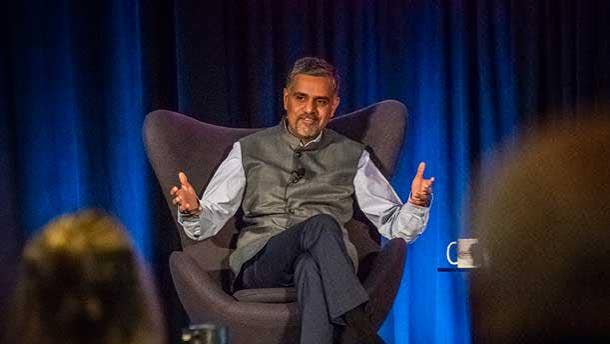
He's taking on Cisco, and sees Aruba's culture as its most significant differentiator.
Raising money to start Aruba, Melkote heard more than his share of doubt. "When I went to Silicon Valley in 2002 to raise money for the company, these are all smart people who asked, 'Why won't Cisco crush you? What's your sustainable differentiator over the long haul?," he said. Today, HPE Aruba is putting significant pressure on Cisco, and Melkote says the key difference between his company and Cisco is culture.
"We, by necessity, were very customer-focused," he said. "I can think of technologies in my head, but if the customer doesn’t embrace it, it doesn’t matter. The way the organization works top down is 'customer first, customer last.' It's built into the DNA of company and our partners who have been with us know it and experience it. Being humble and being hungry and being able to listen to what customers' needs are and responding with solutions leads to good outcomes, so I think the soft aspect of that is as important as the hard aspect."